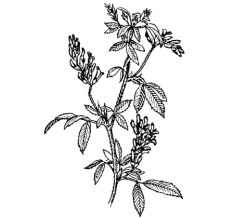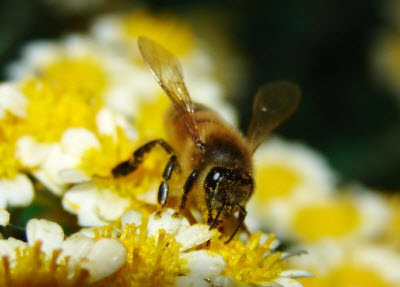On the heels of the decision to deregulate genetically engineered alfalfa, this Friday USDA announced that it will allow the planting of Monsanto’s “Roundup Ready” GE sugar beets even though the agency has yet to finalize conducting an Environmental Impact Statement.
|
|
|||
|
Yesterday, USDA’s Sec. Tom Vilsack announced that genetically engineered alfalfa, that has been modified to withstand repeated application of Monsanto’s RoundUp herbicide, will be completely deregulated nation-wide, without any restrictions. The recently released WikiLeaks cables confirm Vatican’s secret support for GMOs and demonstrate the critical role U.S. diplomacy plays in the spread of biotechnology. A Federal Court ordered the removal of genetically modified beet seedlings. After USDA and Monsanto appealed, the Ninth Circuit Court of Appeals is delaying the removal until a hearing that was rescheduled for February. Follow the money and you will see that the meat and the GMO industry are inextricably tied. GMOs have started to proliferate in Africa and other developing nations. The growth of GMOs in developing nations, however, brings to the forefront deeply rooted issues of social injustice. USDA was asked to approve a genetically modified apple variety that keeps from oxidizing and going brown when cut or damaged, but this is produce nobody wants. Scientists at the University of Bristol have discovered a previously unknown route by which GM genes may escape into the natural environment leading to questions about the unintended patented gene flow. A look at the recent GMO stories, including a manifesto for changing the system of industrial food production and farming, also recent studies revealing the health hazards of GMOs. A settlement in GM rice contamination lawsuit. The tragedy of CAFOs in pictures. And more. With Non GMO Month around the corner, let’s return to the basics: why avoid GMOs? Among concerns, human and animal health, environmental impact, morals and ethics, socioeconomic issues, and food labeling. The Food and Drug Administration has preliminarily determined that a genetically modified salmon developed by AquaBounty Technologies is safe for human consumption but many questions about the safety of GE salmon persist. Last week, superweeds and GMOs were on the minds of many U.S. lawmakers. Reports continued on growing pesticide resistance. Bee colony collapse problem grows. EPA considers giving environmental justice a chance. EU approved more GM maize imports, while a GMO-Free Europe conference nears. And more. A coalition of agriculture groups and 75 Members of Congress wrote to Tom Vilsack, urging the USDA to allow limited planting of Roundup Ready alfalfa while the agency completes an Environmental Impact Statement. The latest stories: Organic pest management proven to be better than pesticides. Chemical farming interests boost anti-pesticide message. GE tree trials continue. Why do we need GM potatoes? GM contamination lawsuits. Personal story about becoming a locavore. And more. Ever since the Supreme Court handed down its mixed 7-1 decision, ruling that the lower court overstepped its boundary by issuing an injunction on the planting of genetically modified alfalfa, some lawmakers were spurred to action. The United States Supreme Court handed down its first ever decision concerning genetically modified crops and it is a mixed result for farmers, consumers and environmental groups. From the company that brought you plastics and rubber (DuPont) comes a genetically modified soybean that is altered to exhibit alleged health benefits. Recent research from USDA points to a correlation between a fungus and a family of viruses that may be working together to cause the Colony Collapse Disorder in honeybees. Many still believe, however, that other causes such as pesticide use in agriculture and GMOs that produce pesticides, also play a role in the collapse. The planting of GMOs in Brazil and Argentina — both among the world’s top producers of GM crops — indicates that growth in GM crop production has guaranteed neither wide-scale social acceptance of the technology nor benefits for small-scale farmers. The claims by biotechnology corporations that genetic engineering increases crop yields, and is therefore necessary to feed a growing world population, have also recently been refuted. Failure to Yield, a report by the Union of Concerned Scientists published in April 2009, is the first to evaluate in detail the overall yield effect of genetic engineering. Specifically, the report concludes “no currently available transgenic varieties enhance the intrinsic yield of any crops. The intrinsic yields of corn and soybeans did rise during the twentieth century, but not as a result of GE traits. Rather, they were due to successes in traditional breeding.” After airing another arguably favorable report on genetically modified crops without acknowledging Monsanto as Marketplace’s sponsor, the program is soliciting listeners’ comments as to whether the program should announce Monsanto’s sponsorship when airing reports discussing Monsanto and their products. As a follow up to my July 16, 2009 post, here are some more interesting statistics. The USDA reports that American farmers have adopted genetically engineered crops widely since their introduction in 1996, notwithstanding uncertainty about consumer acceptance and economic and environmental impacts. |
|||
|
 |
|||












